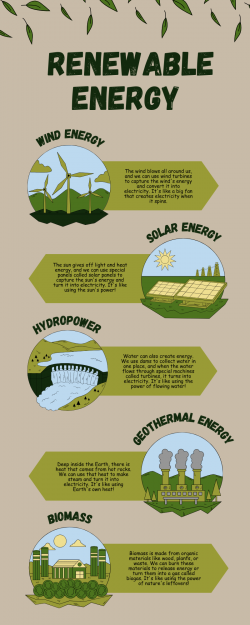Oneal Lajuwomi- The Benefits of Renewable Energy: A Guide to a Greener Future
In a world where environmental concerns are at the forefront of global discussions, the need for sustainable and eco-friendly solutions has never been more urgent. One of the key players in this movement towards a greener future is renewable energy. This blog Oneal Lajuwomi explores the myriad benefits of renewable energy sources, shedding light on the positive impact they can have on the environment, economy, and our overall well-being.
Environmental Advantages
Renewable energy sources, such as solar, wind, hydro, and geothermal power, offer a cleaner alternative to traditional fossil fuels. Unlike their non-renewable counterparts, these sources produce little to no greenhouse gas emissions, reducing air pollution and mitigating climate change. The preservation of air and water quality, along with the protection of ecosystems, makes renewable energy a crucial component of environmental sustainability.
Sustainable Resource Management
Unlike finite fossil fuel reserves, renewable energy draws from inexhaustible resources. Solar energy harnesses the power of the sun, wind energy taps into the earth’s natural air currents, and hydropower utilizes the energy of flowing water. Oneal Lajuwomi says by investing in these sources, we can ensure a continuous and sustainable supply of energy for generations to come.
Economic Benefits
The transition to renewable energy opens up new avenues for economic growth. The renewable energy sector generates jobs in manufacturing, installation, and maintenance, contributing to local and global employment. Moreover, as technology advances and becomes more efficient, the costs associated with renewable energy production continue to decrease, making it an increasingly competitive and economically viable option.
Energy Independence
Relying on renewable energy sources enhances a nation’s energy security by reducing dependence on imported fossil fuels. This independence not only strengthens a country’s resilience to geopolitical uncertainties but also fosters self-sufficiency in meeting its energy needs.
Technological Innovation
The pursuit of renewable energy has driven significant technological advancements. Breakthroughs in energy storage, smart grid systems, and energy-efficient technologies have emerged as by-products of the renewable energy revolution. This technological progress not only improves the efficiency of renewable energy systems but also has broader applications in various industries.
Mitigation of Climate Change
The reduction of greenhouse gas emissions associated with renewable energy significantly contributes to the global effort to combat climate change. By transitioning away from fossil fuels, we can decrease the concentration of greenhouse gases in the atmosphere, slowing down the pace of climate change and its detrimental effects on ecosystems and human societies.
Conclusion
In conclusion, the benefits of renewable energy extend far beyond a greener planet. They encompass economic prosperity, job creation, technological innovation, and the crucial task of mitigating climate change. As we navigate towards a sustainable future, embracing renewable energy is not just a choice; it is a necessity. By championing these clean and renewable sources of power, we can collectively work towards creating a world that is not only environmentally conscious but also economically and socially resilient.




















